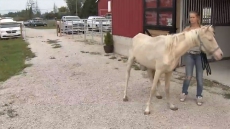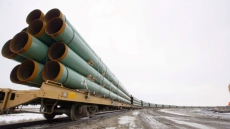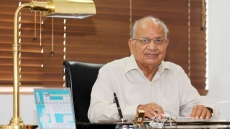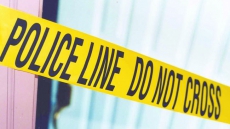MONTREAL — After largely languishing on the sidelines of Quebec politics for roughly 10 years, the federal Liberal brand was rehabilitated Monday as the party picked up its highest number of seats in the province since the 1980s.
Relegated four years ago to seven seats around the island of Montreal, the Justin Trudeau-led Liberals roared through Quebec as Grit candidates won 40 of the province's 78 ridings and captured more than 35 per cent of the popular vote.
It was a strong night for Canadian unity in general as federalist parties took roughly 80 per cent of the popular vote and the separatist Bloc Quebecois was denied official party status for the second straight election.
"Dear Quebec friends, thank you," he said to cheers in his acceptance speech. "Tonight, Canada has rediscovered a bit of itself and, tonight, Quebec has made a real return to the government of Canada."
From the Magdalen Islands in eastern Quebec to the Outaouais region around Ottawa, the Liberals picked off incumbent NDP ridings as the party's message of tax cuts for the middle class and of deficit spending to stimulate the economy seemed to resonate with voters.
The big loser of the night in the province was the NDP, which won 59 out of 75 seats in 2011 but emerged victorious in just 16 out of 78 this time around amid the negative publicity that engulfed it over the contentious niqab issue.
Leader Tom Mulcair kept his Montreal riding after a spirited fight with his Liberal opponent.
The NDP had been leading in the polls in Quebec since the last election but fell behind as the 78-day campaign continued. The party was unable to convince voters in the province that it was best-placed to replace Conservative Leader Stephen Harper.
But despite his negative perception among many Quebec voters, Harper's Tories maintained their foothold in and around Quebec City, picking up several extra ridings in the area to win 12 seats overall in the province. That compares with five in 2011.
Gilles Duceppe's Bloc Quebecois, which had four seats in 2011, won nine ridings — three short of the magic number of 12 needed for the party to obtain official party status in the Commons.
The Bloc finished with 19 per cent of the popular vote in Quebec, down several points from 2011.
Duceppe won't be heading back to Ottawa. For the second straight election, he was defeated by the NDP's Helene Laverdiere in the Montreal riding of Laurier-Sainte-Marie that he held for 21 years.
The Conservatives and Bloc did well for themselves in the province but the night clearly belonged to Trudeau, who also romped to victory in his Montreal riding of Papineau.
While the NDP tried to protect its Quebec seats by running on a platform that placated soft Quebec nationalists, Trudeau was unabashedly pro-Canada.

Mulcair has repeatedly told Quebecers his party would respect a referendum vote if sovereigntists won by a single vote, while Trudeau has categorically dismissed that possibility.
A few weeks before the start of the campaign, he told reporters "I don't think anyone will ever accuse a Liberal named Trudeau of being afraid of going after sovereigntists."
Unlike his father, Pierre Elliott Trudeau, who presided over a deeply divided country on the issue of Quebec independence, the younger Trudeau will become prime minister at a time when sovereignty is not on the minds of most Quebecers.
Not since 1980 have the Liberals done this well in Quebec, when the elder Trudeau won 74 out of 75 seats.
The Liberal brand was hit hard in Quebec after three Jean Chretien-led Liberal governments preceded the infamous sponsorship scandal where tens of millions of taxdollars were misspent.
Now Trudeau will have several big names to choose from as his new Quebec lieutenant.
Pablo Rodriguez, who had helped lead the party in Quebec even though he lost his east-Montreal seat in 2011, regained it Monday.
Trudeau's friend, Melanie Joly, a well-known name in Montreal after she came second in the city's 2013 mayoral race, also won her seat against the NDP's Maria Mourani, the former Bloc MP.
The Tories fared very strongly in the Quebec City area, with Steven Blaney, Jacques Gourde, Maxime Bernier and highly touted recruit Gerard Deltell all winning.
Harper's Quebec lieutenant, Denis Lebel, also won his riding, as did Alain Rayes, a popular small-town mayor in central Quebec.
Trudeau repeated the age-old phrase most leaders utter after elections: "I will be the prime minister of all Canadians."
He thanked Harper for his service to Canada, but also criticized the outgoing prime minister for what he said were his divisive politics of fear.
Trudeau thanked supporters Monday night for voting for him — and his message of tolerance.

"You want a prime minister who knows Canada is a country strong, not in spite of our differences but because of them," he said. "A PM who never seeks to divide Canadians but takes every single opportunity to bring us together."




